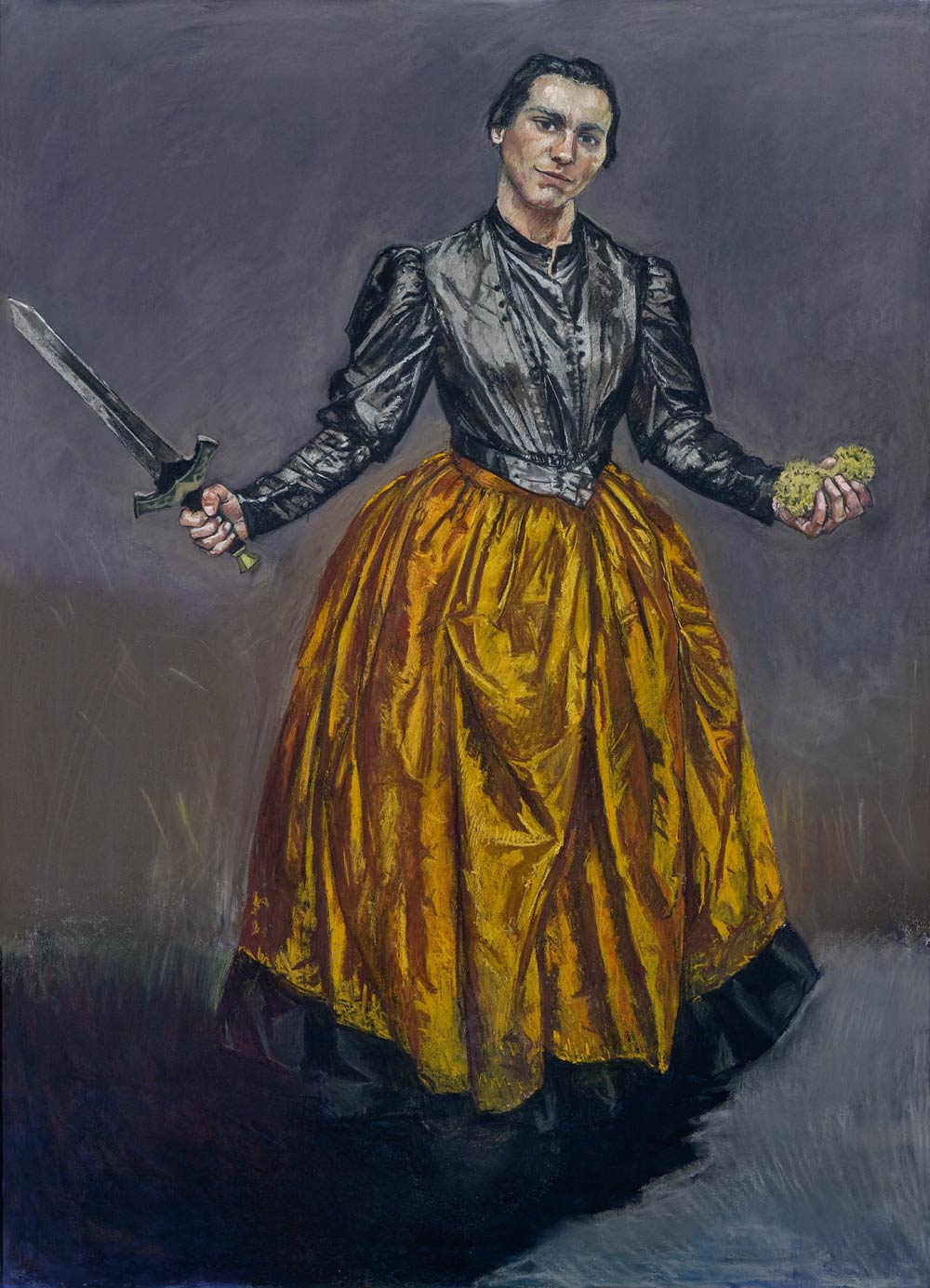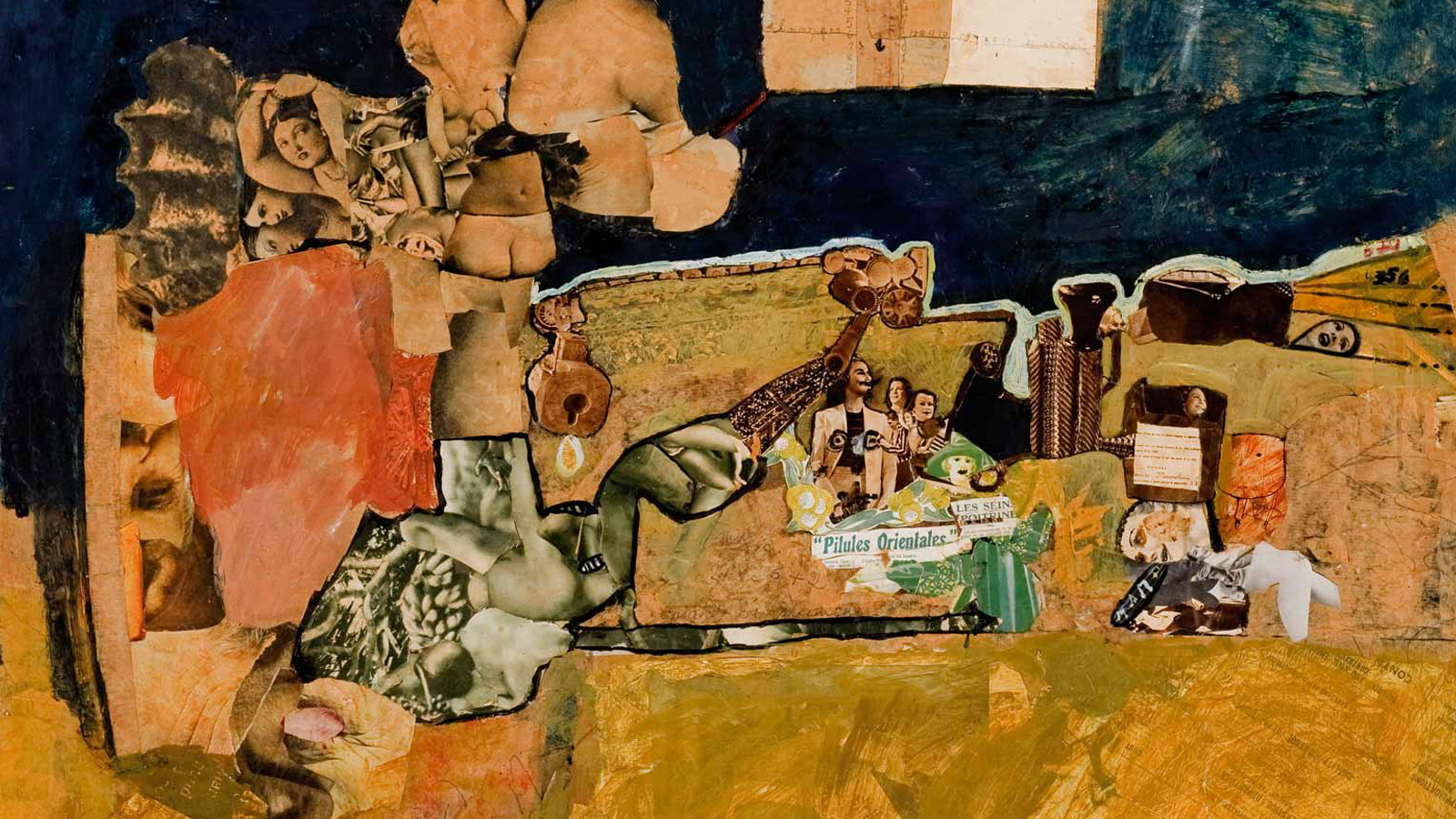Works by Paula Rego
‘Angel’ is one of Paula Rego’s most iconic works, manifesting a synthesis of all her artistic production – the artist even stated that this would be the painting she would take with her when she left. It shows the figure of a powerful woman, identifiable as an ‘Angel’, both avenging and merciful, clutching a sword and a sponge, symbols of the Passion of Christ or of his punishing force. Though not explicitly a self-portrait, it is a strong image that identifies with the interventionist sense of the artist’s work: between protection and revenge, punishment and forgiveness.
The painting is part of a series of works inspired by the Portuguese novel ‘The Crime of Father Amaro’, by Eça de Queirós, and is an example of the artist’s own fictional intervention on the story. The novel, forbidden reading at the time of its controversial publication in Portugal (1875), and which sparked protests from the Catholic Church for approaching questions such as clerical celibacy and the permitted death of illegitimate newborns, provided the artist with a wealth of fictional material.

Paula Rego establishes a non-illustrative dialogue with the novel, using all the visual resources of the pre-modern pictorial tradition to characterise her figures, exposing them in the fragility of their ethical and moral behaviours and developing a subversive reading. It is not just a condemnation of the acts, but also a cutting and painful revelation of the rituals of power, submission and complicity between sexes and classes. This is particularly evident with the figure of Amaro, the weak and sinful priest, ambiguous and malign, who is subject to a series of subtle deviations and shifts in time.
The canvas was purchased in February 2022, along with the painting ‘Turkish Bath’ (1960) – the latter painted on the back of a portrait of the artist by Victor Willing, her husband. The critical citation of the neoclassical painting of Ingres, present in the title itself, made in dialogue with or in response to the nude portrait, can be viewed as the first and subtle sign of a strong feminist consciousness. The acquisition was made at a significant moment in Paula Rego’s international career, given her recent exhibitions at Tate Britain (2021), the Kunstmuseum Den Haag (2022) and the Museo Picasso Málaga (2022).

